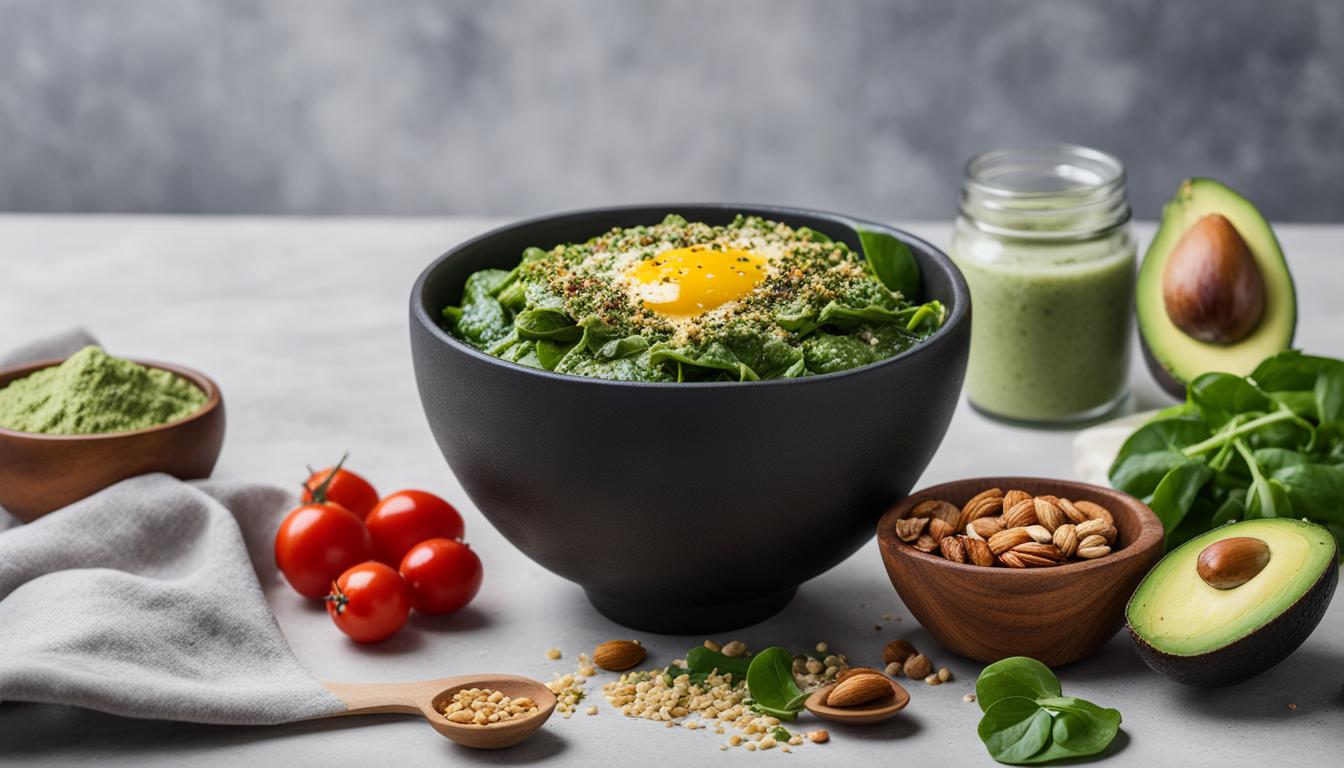Discover How Psyllium Husk Is Keto-Friendly and Transform Your Diet Today!
Understanding the Keto Diet and Its Principles
Before we dive into the incredible benefits of psyllium husk and its keto-friendly properties, let’s take a moment to understand the ketogenic diet itself. The keto diet, short for ketogenic diet, is a low-carb, high-fat diet that has gained immense popularity for its remarkable health benefits and weight loss effects.
The principle behind the keto diet is to drastically reduce carbohydrate intake and replace it with healthy fats, promoting a metabolic state known as ketosis. During ketosis, the body becomes incredibly efficient at burning fat for energy, leading to a multitude of benefits such as improved weight management, increased mental clarity, and enhanced physical endurance.
Research has shown that the keto diet not only aids in weight loss but also offers potential benefits for conditions such as diabetes, epilepsy, and metabolic syndrome. The focus on consuming high-quality fats and adequate protein while minimizing carbohydrates forms the foundation of the keto lifestyle, which has captivated the interest of health enthusiasts worldwide.

What is Psyllium Husk?
Psyllium husk is a type of soluble fiber derived from the seeds of the Plantago ovata plant. It has been a staple in traditional medicine for centuries, prized for its exceptional health benefits. Psyllium husk is popularly used as a dietary supplement due to its impressive fiber content.
When it comes to the keto diet, psyllium husk is often regarded as a game-changer. Its low net carbohydrate content makes it an ideal choice for those following a ketogenic lifestyle.
Psyllium husk is keto-friendly because it provides a significant amount of fiber while being low in digestible carbohydrates. This means it has little to no impact on blood sugar and insulin levels, making it a valuable addition to a keto diet.
Detailed Breakdown of Macronutrients and Fiber Content in Psyllium Husk
Psyllium husk is a fantastic addition to a keto diet due to its impressive nutritional profile. Let’s delve into the macronutrients and fiber content to understand why it’s so keto-friendly.
Macronutrient Breakdown:
Psyllium husk is primarily composed of carbohydrates, with a minimal amount of fat and protein. A 100-gram serving of psyllium husk provides approximately 85 grams of carbohydrates, making it essential to factor into your daily carb intake on a keto diet. However, of these 85 grams, a staggering 80 grams are dietary fiber, which is not digested by the body and therefore does not impact blood sugar levels.
Fiber Content:
The high fiber content in psyllium husk is one of its most valuable attributes for those following a ketogenic lifestyle. Fiber not only promotes digestive health and regularity but also helps with managing weight and controlling blood sugar levels. The soluble fiber in psyllium husk absorbs water in the gut, forming a gel-like substance that supports a feeling of fullness and aids in the slow release of nutrients.
Incorporating psyllium husk into your keto diet can assist in ensuring you meet your daily fiber intake goals, which can sometimes be challenging to achieve through whole food sources alone.
With its low net carb count and exceptionally high fiber content, psyllium husk is undeniably keto-friendly and can greatly contribute to your success on the ketogenic diet.
Psyllium Husk and the Keto Diet
Psyllium husk is an incredible addition to a ketogenic lifestyle. It’s not only keto-friendly, but it can also transform your diet in countless ways. Let’s dive into how psyllium husk fits into a ketogenic diet.
Firstly, psyllium husk is an excellent source of soluble fiber. Research has shown that soluble fiber can help improve overall gut health, aid in digestion, and contribute to a feeling of fullness, which can be particularly beneficial when following a ketogenic diet. It can also assist in maintaining stable blood sugar levels, another key aspect of the keto lifestyle.
Furthermore, incorporating psyllium husk into your diet can support your daily fiber intake. According to studies, increasing fiber consumption can have a positive impact on weight management and metabolic health, making it a valuable addition to a keto diet.
So, is psyllium husk keto-friendly? Absolutely! Its fiber content and health benefits make it an ideal choice for those following a ketogenic lifestyle.
Benefits of Psyllium Husk on Keto
Let’s dive into the specific advantages of consuming psyllium husk while on a keto diet. Psyllium husk is an incredible source of soluble fiber, making it an excellent addition to a ketogenic lifestyle.
When following a keto diet, it’s crucial to increase fiber intake to support digestive health and maintain regularity. Psyllium husk is keto-friendly because it has zero net carbs, but contains a significant amount of fiber.
Research published in the Journal of Clinical Gastroenterology indicates that psyllium supplementation can effectively improve symptoms of constipation, which can be a common issue when transitioning to a low-carb, high-fat diet.
Furthermore, the soluble fiber in psyllium husk can help promote a feeling of fullness, which is beneficial for managing cravings and controlling appetite while following a keto diet. This can contribute to better adherence to the diet and potentially aid in weight management.

Addressing Potential Drawbacks and Precautions of Using Psyllium Husk on Keto
While psyllium husk is a fantastic and keto-friendly addition to your diet, there are some considerations to keep in mind to ensure that you use it safely and effectively. Here are a few potential drawbacks and precautions associated with incorporating psyllium husk into your ketogenic lifestyle:
Possible Digestive Issues
For some individuals, introducing psyllium husk too quickly into their diet may lead to digestive discomfort such as bloating, gas, or stomach cramps. It’s important to start with small amounts and gradually increase your intake to allow your body to adjust.
Hydration is Key
Psyllium husk absorbs water and can swell in your throat if not taken with enough liquid. It is crucial to drink plenty of water throughout the day to prevent it from causing blockages in your digestive tract and to promote its beneficial effects.
Interference with Medications
Due to its high fiber content, psyllium husk may interfere with the absorption of certain medications. If you are taking any medications, especially those for diabetes or cholesterol management, it’s essential to consult with your healthcare provider before adding psyllium husk to your routine.
By being mindful of these potential drawbacks and taking necessary precautions, you can enjoy the numerous benefits of psyllium husk while minimizing any risks associated with its use on a keto diet.
Practical Tips for Adding Psyllium Husk to Keto Recipes
Psyllium husk is an excellent addition to ketogenic meals, as it is low in carbs and high in fiber, making it a perfect fit for a keto-friendly diet. Here are some practical tips and ideas for seamlessly incorporating psyllium husk into your keto recipes:
1. Baking:
When baking keto-friendly bread, muffins, or cakes, add a tablespoon or two of psyllium husk to the batter. It not only provides a boost of fiber but also helps in creating a better texture and structure, mimicking the characteristics of traditional flour.
2. Thickening Agent:
Use psyllium husk as a natural thickening agent in soups, stews, and gravies. It adds a subtle thickness and works as a fantastic replacement for traditional high-carb thickeners like flour or cornstarch.
3. Smoothies and Shakes:
Sprinkle a teaspoon of psyllium husk into your keto-friendly smoothies and shakes. It not only adds a creamy texture but also increases the fiber content, making your beverage more satiating.
By incorporating psyllium husk into your keto recipes, you can enjoy the benefits of its fiber content while maintaining a low-carb, ketogenic lifestyle.
Remember, while psyllium husk is keto-friendly, moderation is key. Start with small amounts, and gradually increase as you assess your tolerance and digestive response to it.
Experiment with these tips and ideas to discover how psyllium husk can elevate the nutritional value of your keto meals while keeping them delicious and satisfying.
Summary of key points regarding the keto-friendliness of psyllium husk
Psyllium husk is a keto-friendly powerhouse that can transform your diet in amazing ways. It is a soluble fiber derived from the seeds of Plantago ovata, and it’s known for its ability to support digestive health and weight management. Psyllium husk is extremely low in digestible carbohydrates, making it an excellent addition to a ketogenic lifestyle. Research has shown that consuming psyllium husk can help lower blood sugar levels, improve satiety, and aid in weight loss. Its gel-like consistency can also help create a feeling of fullness, which may assist in reducing overall calorie intake. The high fiber content of psyllium husk can also support a healthy gut microbiome, which is crucial for overall well-being on a keto diet. With all these benefits, it’s clear that psyllium husk is indeed keto-friendly and can be an invaluable addition to your ketogenic journey!


